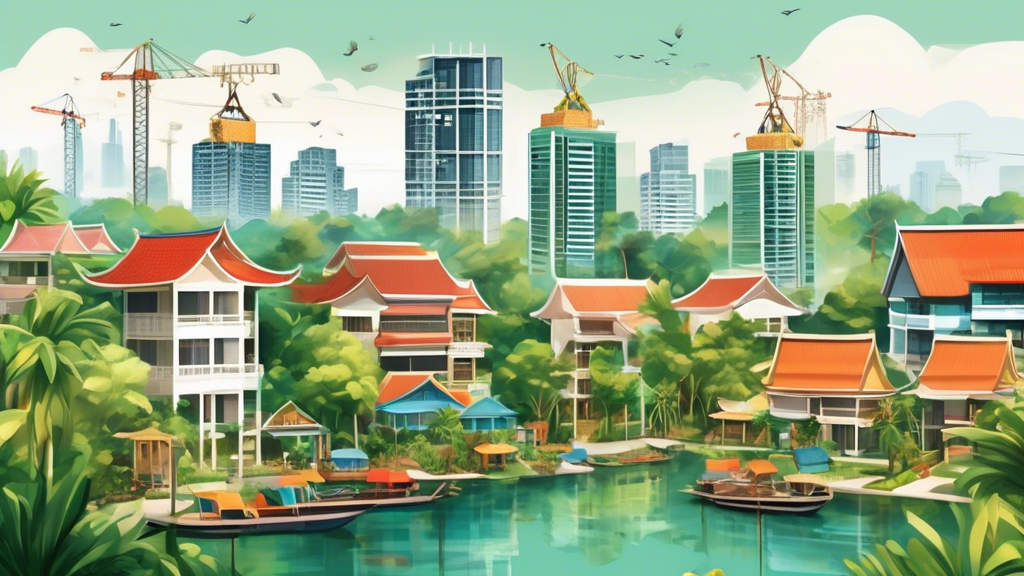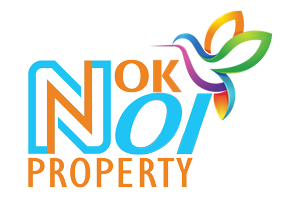
Introduction
The Thailand real estate market in the first quarter of 2024 has exhibited a mix of challenges and opportunities, reflecting a complex landscape. While certain segments of the market have faced headwinds, others have shown signs of resilience and potential for future growth. This article delves into the varied outcomes observed in the Q1 2024 period and explores the long-term promise of the Thailand real estate market.
Urban Residential Market: A Mixed Bag
The urban residential sector, particularly in Bangkok, has seen varied performance. The high-end luxury apartment and condominium segments continue to attract interest from both local and international buyers, driven by Thailand’s appeal as a prime investment destination and second-home market. However, the mid-range and affordable housing segments have faced challenges such as oversupply and increased borrowing costs, leading to slower sales and price adjustments.
Factors Influencing Urban Residential Outcomes
Several factors have contributed to the mixed outcomes in the urban residential market. The return of foreign investors and expatriates has bolstered demand for premium properties, while local economic uncertainties and tightened lending conditions have dampened the lower and middle segments.
Additionally, remote work trends have influenced preferences, with more buyers seeking spacious accommodations that offer better value outside the core urban areas.
The Hospitality Sector: A Gradual Rebound
The hospitality sector, a significant part of Thailand’s real estate market, is experiencing a gradual recovery. The lifting of travel restrictions and the return of international tourists have revitalized the industry, although it has not yet reached pre-pandemic levels.
Investors and developers are cautiously optimistic, focusing on refurbishing existing properties and exploring sustainable and health-conscious developments to cater to evolving traveler preferences.
Commercial Real Estate: Navigating Challenges
The commercial real estate sector has faced its share of challenges in Q1 2024, with office spaces experiencing higher vacancy rates due to the persistence of remote work arrangements. However, there is growing interest in flexible workspaces and co-working facilities, reflecting a shift in how businesses approach their office space needs.
Retail Spaces: Adaptive Strategies
Retail spaces have also had to adapt, with a notable increase in e-commerce impacting traditional brick-and-mortar stores. Malls and shopping centers are investing in experiential and mixed-use developments to attract visitors and provide unique experiences beyond shopping.
Infrastructure Development: A Pillar of Long-Term Growth
One of the key drivers of long-term growth in Thailand’s real estate market is the ongoing investment in infrastructure development. Projects such as the Eastern Economic Corridor (EEC), expansions of mass transit systems in Bangkok, and improvements in regional connectivity are expected to stimulate economic activity and enhance property values in surrounding areas.
Environmental and Sustainable Initiatives
There is also an increasing emphasis on environmental and sustainable initiatives in property development. Green buildings, energy-efficient designs, and eco-friendly construction practices are gaining traction as developers and investors recognize the importance of sustainability in future growth strategies.
Conclusion
The Thailand real estate market in Q1 2024 presents a tapestry of varied outcomes, influenced by a combination of local and global factors. While certain segments, such as luxury residential properties and hospitality, show promise, other areas like mid-range housing and traditional office spaces face challenges.
However, the long-term outlook remains positive, bolstered by strategic infrastructure projects and a growing emphasis on sustainability. As Thailand navigates its way through the complexities of the current market landscape, there is significant potential for growth and transformation in the years to come.

